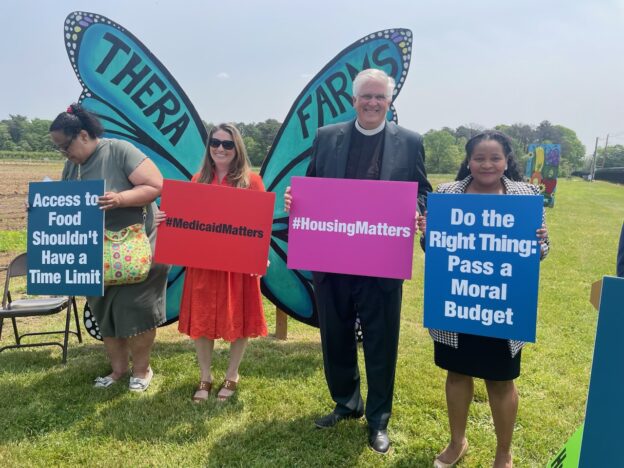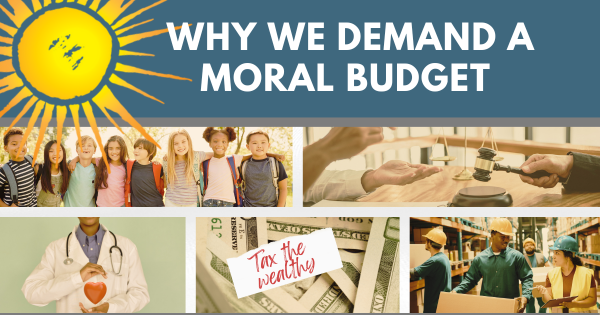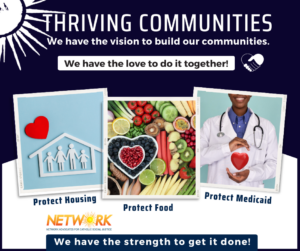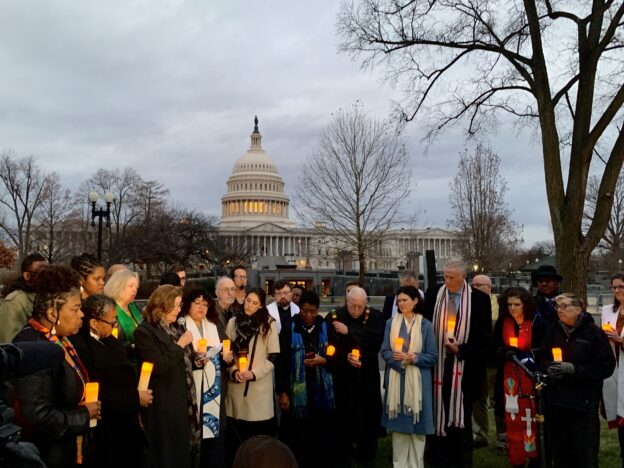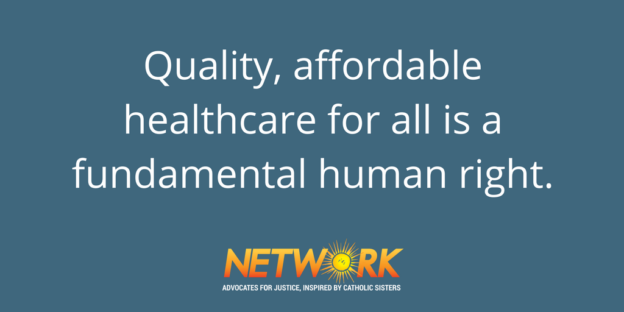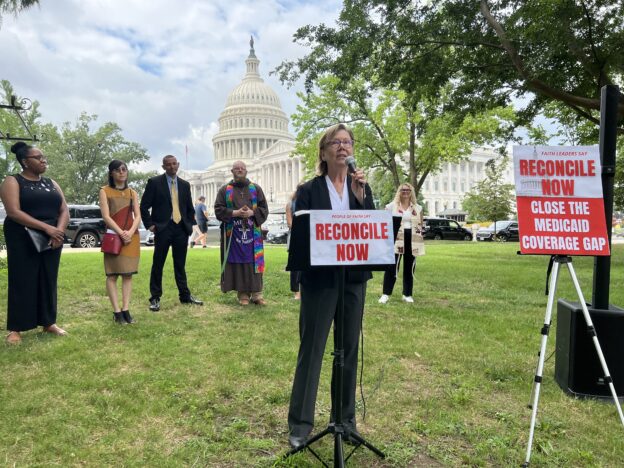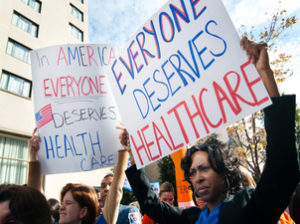
Wisdom from Long Island Justice-Seekers at the Care Not Cuts Rally for the Safety Net
Colin Martinez Longmore
May 24, 2023
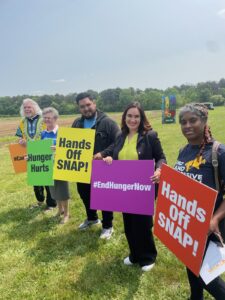
From left to right: Fr Frank Pizzarelli, Sr. Tesa Fitzgerald, Angel Reyes, Serena Martin-Liguori, Monique Fitzgerald
In the face of the unjust healthcare, housing, and food program cuts proposed by House Republicans, justice-seekers came together in New York on May 22 to continue NETWORK’s Thriving Communities Campaign and demand a moral budget that protects all our neighbors! Almost 100 Sisters, clergy, partners, and advocates turned out to oppose these cuts and defend food, housing, and healthcare programs.
In order to highlight the devastating harm their proposed social program cuts would bring to the local community, NETWORK invited organizations who provide vital services to impacted families and individuals of all backgrounds. The result of that work culminated in the first of our Care Not Cuts rallies on Long Island, New York, which drew over 85 attendees and 12 community organizations that are on the frontlines of care in Long Island.
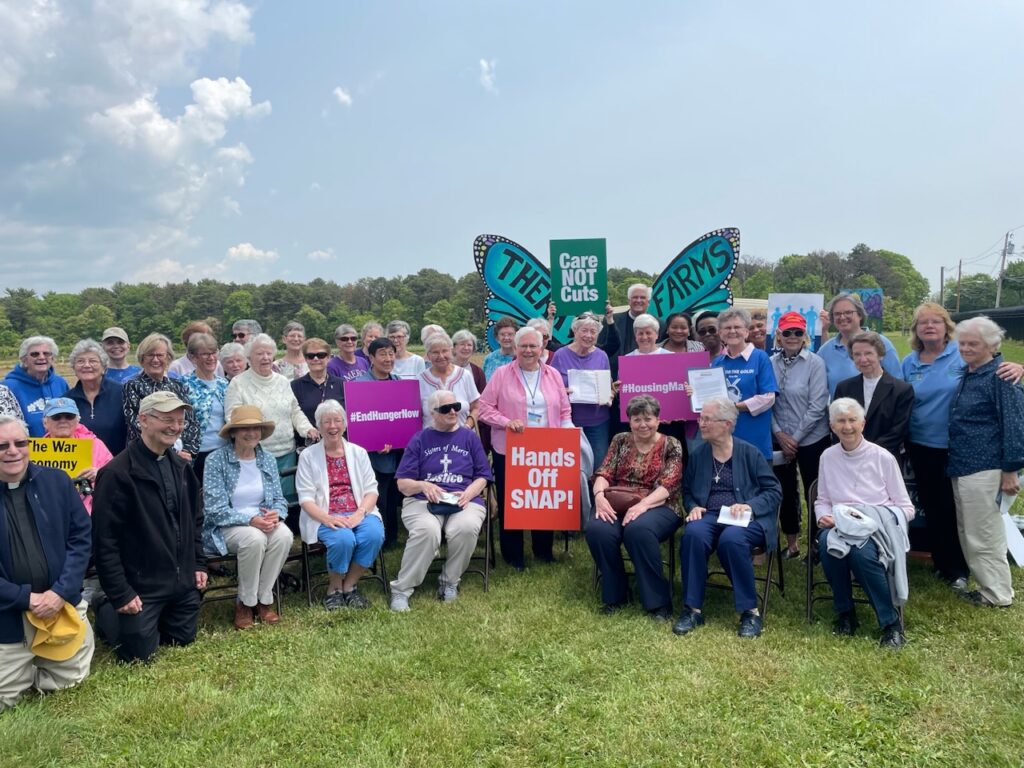
Almost 100 Sisters, clergy, community leaders and other justice-seekers gathered at Thera Farms in Brentwood, N.Y. to oppose cuts to food, housing, and healthcare programs in the federal budget.
Thera Farms, located on the beautiful, sprawling campus of the Sisters of Saint Joseph in Brentwood, served as the backdrop for the rally. Thera Farms is a local community farm that offers fresh produce to women, children, families and seniors by accepting SNAP, WIC and other nutritional benefits at their farm stand.
We heard from powerful advocates like the Sisters of Saint Joseph Brentwood, New Hour for Women and Children, Mercy Haven, and Make the Road New York. Together we spoke about what is at stake from the immoral social program cuts, and called on the community to contact their members and demand a moral budget.
Wisdom from Long Island Justice-Seekers at the Care Not Cuts Rally for the Safety Net
Selected statements from justice-seekers at the Care Not Cuts Rally for the safety net
“We need to stop putting the poorest of us on the line when Washington wants to balance the Federal Budget,” said Skyler Johnson of New Hour.
“It’s tax cuts for the wealthy that have blown up the debt in our country. It is not the social programs for those in need,” said Mark Hannay of Metro New York Healthcare for All.
“This isn’t just about the government and people being held hostage. This is a blatant attack on working people, on the hungry, on the homeless and work insecure, on children, on veterans, on the disabled, on women, on LGBTQI people, on Black and Brown communities, on our Indigenous neighbors. This is an attack on all of us,” said Ani Halasz of Long Island Jobs with Justice.
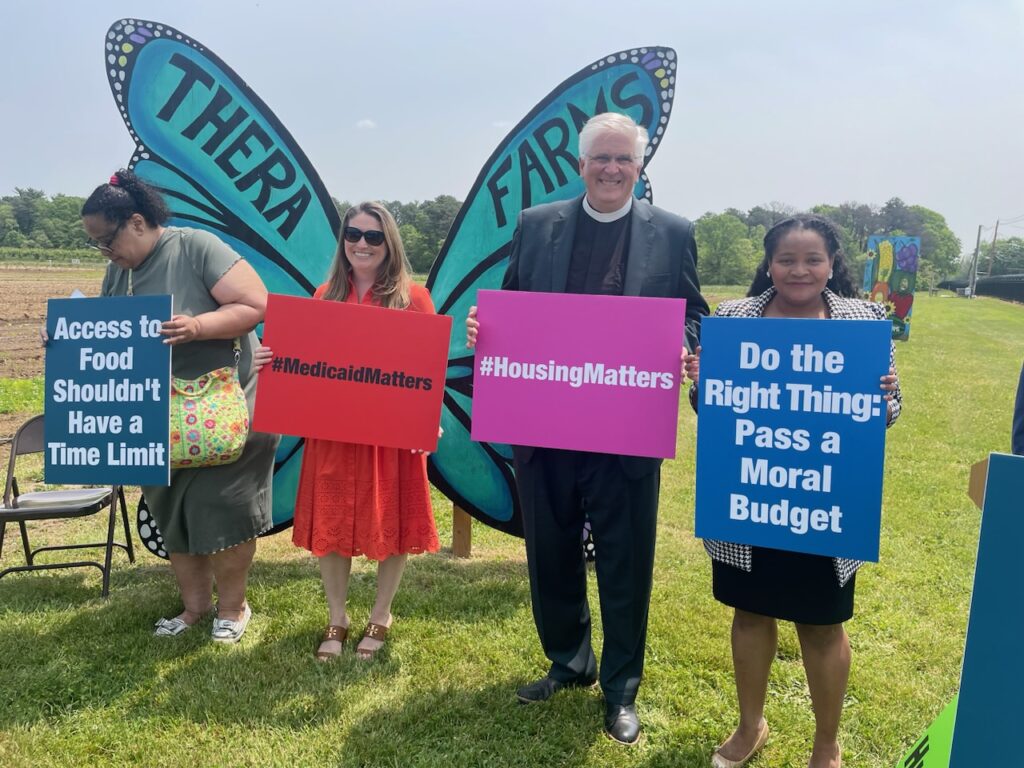
Justice-seekers defend vital human needs programs from federal budget cuts at NETWORK’s Care Not Cuts rally in Brentwood, N.Y., on May 22. Melanie D’Arrigo, Campaign for New York Health (in red), Rev. Peter Cook and Rashida Tyler, New York State Council of Churches.
The consequences of an immoral budget are dire, but the efforts and resilience of our advocates and justice-seekers are strong enough to make a change. Throughout our rally, we could see a clear, hopeful vision: when we come together, we can create a community where everyone can thrive.
Colin Martinez Longmore is NETWORK’s Grassroots Outreach and Education Coordinator.







